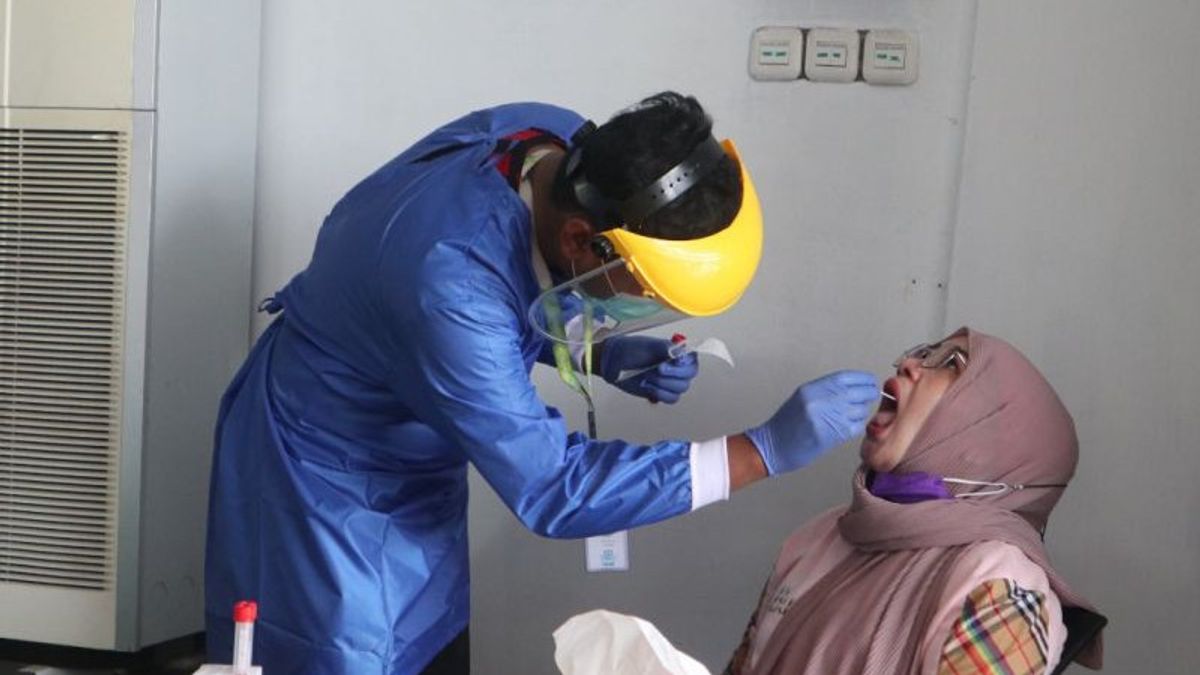JAKARTA - The government has officially removed the mandatory PCR test requirements for flight or air transportation travelers. This abolition has received appreciation and is considered the right step.
Through an online press conference, Coordinating Minister for Human Development and Culture (Menko PMK) Muhadjir Effendy said the requirement to show PCR results for airplane passengers no longer applies. Thus, users of air transportation modes in the midst of the COVID-19 pandemic simply show the results of the rapid antigen test.
"There will be changes for travel, namely for the Java and Bali regions, air travel no longer requires using a PCR test, but simply using an antigen test. The same is the case for areas outside Java, non-Bali," said Muhadjir.
It's just, he hasn't explained when the usage rules are
The results of this rapid antigen test will apply again and other rule changes.
The government's decision was later praised by Australian Griffith University epidemiologist Dicky Budiman. He said this was the right move so that it could be good news, especially for people who often ride airplanes.
"In addition to being good news, the meaning is appropriate because it is in accordance with the public health strategy," he said when contacted by VOI, Tuesday, November 2.
He said that the use of the rapid antigen test results as a health document for travelers was sufficient. Moreover, said Dicky, this rapid test method is cheaper than the PCR test, which is expensive and often difficult for the public to access.
In addition, he also said that airplanes are actually one of the safest modes of transportation to ride in the midst of a pandemic. "In terms of technology, ventilation, circulation ranks the highest, the highest hierarchy with the use of a HEPA filter that can inactivate viruses, bacteria, and fungi," said Dicky.
Not only that, he also revealed that the possibility of someone being exposed to COVID-19 is quite small. Prior to the massive distribution of the COVID-19 vaccine, based on IATA data, cases of viral infection only occurred in 1 in 27 million airplane passengers.
This figure, said Dicky, could be even lower because people are now required to receive the COVID-19 vaccine before boarding an airplane and are required to wear masks. With all this exposure, he assessed that PCR tests for travelers using air transportation modes are not necessary.
"Even when the vaccination coverage is 80 percent there is no need for a test. Just go and go in the country like in Australia. Unless you want to visit abroad because it varies and each country has its own safety standards to prevent the virus, but if it's domestic, it shouldn't be a problem," he explained.
Instead of planes, the government should be more worried about the possibility of transmitting the virus that occurs in public transportation such as inter-city buses that are widely used by the public. "It's really dangerous because there are a lot of ventilation problems and the spread of clusters there, so this should be something to watch out for and tighten up," said Dicky.
Meanwhile, land transportation modes such as private cars and motorbikes are still in the safe category. "Moreover, the motor winds here and there," he said.
So if the government wants to tighten it by issuing checking rules for travelers for more than four hours, he agrees. However, he asked for the test to be carried out for antigen only because it is more affordable by the public.
Not only that, he also reminded the importance of vaccination and health protocols for land travelers, especially those using city buses. "There must be compliance that he must have been vaccinated, compliance with health protocols, social distancing, and so on," he concluded.
The English, Chinese, Japanese, Arabic, and French versions are automatically generated by the AI. So there may still be inaccuracies in translating, please always see Indonesian as our main language. (system supported by DigitalSiber.id)











